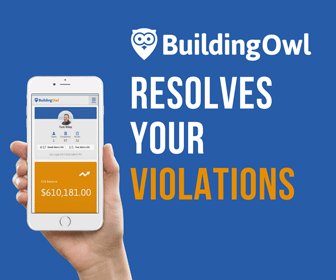
Decoding “City of Yes”: NYC Is Positive About Carbon Neutrality
There’s no more need to talk about green infrastructure in the future tense — under the new plan for combating climate change in New York City, the future of sustainability starts now.
Passed on December 6, 2023, the City of Yes for Carbon Neutrality initiative is a comprehensive amendment to outdated zoning restrictions, encouraging the growth of green infrastructure in NYC. Of the three separate initiatives under the City of Yes plan — the other two being Housing and Economic Opportunity — Carbon Neutrality was the first proposal to reach approval. It is a joint effort from the Department of City Planning (NYC Planning), Department of Buildings (DOB), New York City Fire Department (FDNY), and the Mayor's Office of Climate and Environmental Justice (MOCEJ). The plan aims to decarbonize every aspect of NYC’s infrastructure, including the power grid, buildings, waste disposal, and methods of transportation.
“Our city — and our world — is facing a climate emergency, and these urgent reforms show that the city is rising to meet the moment,” said Maria Torres-Springer, the Deputy Mayor for Housing, Economic Development, and Workforce, in a press release. “New York is a ‘City of Yes,’ and that means yes to solar panels, energy storage, and green infrastructure in every neighborhood.”
Regulatory obstacles removed, City of Yes encourages the installation of green technology to reduce the city’s reliance on carbon. These zoning changes work alongside the increasing carbon benchmarks for buildings to prepare NYC for a cleaner, greener future.
Decarbonizing Energy
Decarbonizing NYC’s energy grid means decentralizing with “distributed energy resources” (i.e. wind, solar, and energy storage), which will be supplemented with zoning changes under City of Yes. The proposed changes include:
- Rooftop solars: To increase solar energy generation on roofs, the proposal will remove height and coverage restrictions that previously limited rooftop solars mostly to short buildings with plenty of roof area. The new zoning applies a height limit of 5 ft to sloped roofs, and 15 ft to flat roofs with permission to cover the entire roof area.
- Solar Parking Canopies: Solar canopies can be installed above parking structures as “permitted obstructions,” up to a height of 15 ft.
- Stand-alone Solars: The proposal will allow solar energy systems up to 10,000 sq ft in all residential districts, and redefines “solar generation” as “energy infrastructure equipment.”
- On-shore Wind: Under a new City Planning Commission authorization, waterfront wind-energy systems may exceed the current height restrictions.
- Energy Storage Systems (ESS): The proposal allows for energy storage systems (ESS) as primary uses on residential sites up to 10,000 sq ft, and without size limits in commercial and manufacturing districts.
Decarbonizing Buildings
Building and construction codes have already undergone recent changes to support decarbonziation, but City of Yes will support major retrofits that allow building owners to catch up on the current carbon emission requirements. The changes are some of the most comprehensive out of the proposal, and include:
- Electrification Retrofits: To ease the process of decarbonizing buildings’ mechanical systems, the proposal will update permitted obstruction rules for roofs above the maximum height, allow energy systems in required open areas, remove certain floor area restrictions, extend screening requirements to all equipment regardless of location, and provide a new BSA permit for buildings that need more relief to undertake electrical retrofittings.
- Envelope Retrofits: Efforts to address the energy use of existing buildings are often hindered by poorly insulated walls and roofs, so newly relaxed restrictions will encourage overcladding and recladding.
- Fix Zone Green: The existing zone green deduction, which incentivizes higher performing walls in new buildings, is simplified under the proposal to a 5% floor area exemption. It allows for ultra-low energy buildings and existing buildings that retrofit for electrification to qualify for the deduction.
Decarbonizing Transportation
As electric vehicles become more accessible and common, the city increasingly requires an infrastructure that supports charging stations. City of Yes also encourages green transportation by encouraging bicycle use, in turn allowing more New Yorkers to favor low- or zer-emission vehicle options. The proposed changes include:
- EV Charging: Electric vehicle charging stations will be permitted in all commercial and manufacturing districts.
- Charge-Sharing: Both accessory and public parking facilities can add electric vehicle charging spaces; owners of accessory parking stations may designate up to 20% of spaces for a mix of shared electric vehicle charging or car sharing, while public parking stations may designate up to 100% of spaces.
- Parking Flex: In most commercial and all manufacturing districts, up to 20% of accessory parking spaces may be occupied by car sharing, car rental, and public electric vehicle charging. 50% of spaces may also be available for car sharing, rental, and storage.
- Automated Parking: All automated parking facilities throughout the city will have reduced minimum size requirements.
- Bike Parking: “Public bicycle and micro mobility parking” will become available in all commercial and manufacturing districts, allowing more public parking options for bikes, and introducing bike storage racks and lockers in open spaces.
Decarbonizing Waste
Cities are wasteful by nature, but that doesn’t mean NYC’s infrastructure is doomed to overproduce organic waste. Under City of Yes, waste decarbonization means more available composting and water-recycling infrastructure. While the efforts may be incomplete, the proposed changes are a major step in the right direction:
- Porous Paving: The proposal expands the use of permeable paving to support stormwater runoff reduction.
- Street Trees: Alongside porous paving, updated street tree requirements allow for connected tree beds and raingardens, reducing water runoff.
- Organics: To support composting and recycling efforts, the proposal permits small-scale composting and recycling facilities in all commercial districts.
- Rooftop Greenhouses: Existing certification requirements for rooftop greenhouses will be removed, and non-residential greenhouses may be permitted under DOB review.
Conclusion
Zoning changes can be tricky to navigate, and the City of Yes initiative introduces numerous regulations to decode. If you are looking for assistance understanding the new proposal, please reach out to Outsource Consultants, Inc. for expert guidance.
Resources








